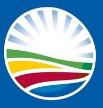DA welcomes Western Cape emergency school feeding scheme, calls on all provinces to follow suit
9 April 2020
The Democratic Alliance (DA) commends the Western Cape Education Department (WCED) on the launch of its emergency school feeding scheme for vulnerable learners in the province during the Covid-19 lockdown. The programme is targeted at the approximately 483 000 learners who normally receive meals at school during the school term.
The Provincial Treasury has allocated approximately R18 million in additional funding to the WCED for the scheme. The feeding scheme will allow schools to distribute food to learners on Wednesday and Friday this week, and on Tuesday and Friday next week. Individual schools will be permitted to provide daily meals.
Millions of South African scholars have faced extreme hunger during this lockdown period and sadly many of them will continue to suffer for the duration of this lockdown period. The DA therefore welcomes the forward thinking and initiative that has been displayed by the WCED and calls on the remaining eight provincial education departments to follow the Western Cape’s lead.
The WCED has filled an important gap in providing meals to the vulnerable which ultimately is the responsibility of the Department of Social Development. However, whilst Minister Zulu was busy posting videos about how hard it was for her to remain indoors, the WCED has been working hard to ensure that the children of the Western Cape do not go to bed hungry.
It is, however, disappointing that several stakeholders including the Chairperson of Parliament’s Portfolio Committee, BongiweMbinqo-Gigaba, and the South African Democratic Teachers Union (SADTU) have sought to grandstand on this matter.
The Chairperson’s statement this week was particularly problematic in which she inferred that the feeding scheme would expose communities to contracting Covid-19. These comments are baseless. Additionally, it is problematic for her to make pronouncements on the matter of feeding schemes without discussing it with the committee.
SADTU’s claims that the feeding scheme would defeat attempts to curb the spread of the virus, is also false. Had they taken the time to interrogate the WCED’s protocols, they would know that the Department has gone to great lengths to ensure the safety of learners and staff. Some of the measures include:
Sufficient adult supervision to make sure learners are following all the safety protocols;
An orderly queuing system, preferably in a staggered manner to reduce the number of learners arriving at the same time;
Learners will not eat at schools and must bring their own food containers from home, which are not touched by the staff/volunteers;
Learners must remain at least 1.5 m apart from one another and no more than 50 children may enter at a time; and
Soap, water and hand sanitiser will be provided for learners to wash their hands.
The WCED’s decision to implement an emergency school feeding scheme was evidently not taken lightly; required broad consultation with school districts, principals, and communities and was clearly taken in the best interest of vulnerable learners in Western Cape communities.
It is therefore disheartening that certain stakeholders would seemingly rather have children go hungry in their superficial attempts to score cheap political points.
For many children the meals they receive at school, is the only meal they’ll have for the entire day. It is therefore incumbent on governments to seek ways in which they can assist and ensuring that vulnerable South Africans have food on the table.
The DA welcomes the WCED’s emergency feeding scheme and trust that all provinces will follow suit.
Issued by Chantel King,DA Member on the Portfolio Committee of Basic Education, 9 April 2020

